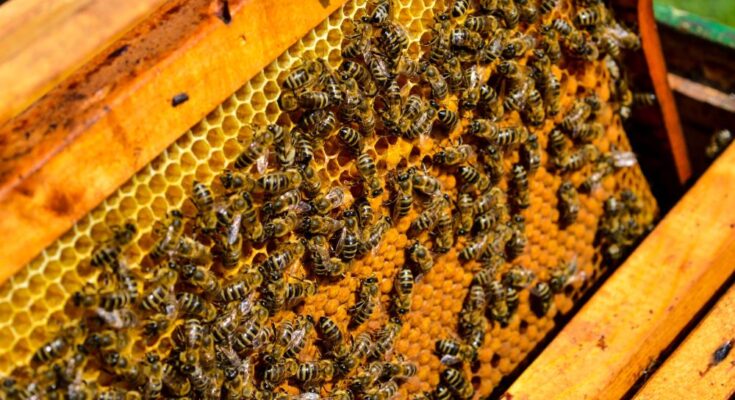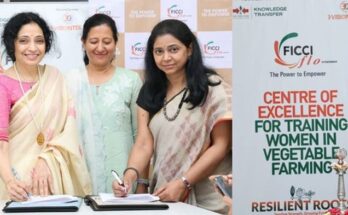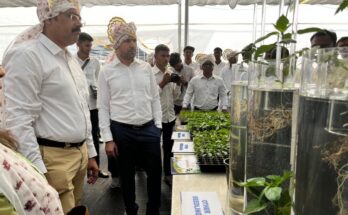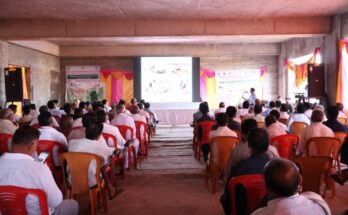Rome -Today, on the occasion of the fourth observance of World Bee Day, QU Dongyu, Director-General, Food and Agriculture Organization of the United Nations (FAO) highlighted the important role that bees and other pollinators play in ensuring ecosystems services, food security, nutrition, and livelihoods, at a high-level virtual gathering under the theme ‘Bee engaged – Build Back Better for Bees’.
“The 2030 Agenda calls for the eradication of hunger and poverty” said the Director-General. “We need food systems that are more efficient, inclusive, resilient and sustainable. Bees play a major role in that. They are important to our food security, nutrition and the environment.”
“It is estimated,” said the Director-General, “that the value of pollination services to global food production is worth up to USD 600 billion annually.”
“FAO is leading the global celebrations of the 2021 International Year of Fruits and Vegetables,” continued the Director-General. “[This year] it is particularly important to highlight the role of pollinators for fruits and vegetables.”
Three out of four leading food crop types across the globe depend, at least in part, on pollinators. However, in many regions bees and other wild pollinators such as birds, bats, butterflies and beetles are declining in abundance and diversity. Most of these drivers are manmade. The absence of pollinators would majorly affect coffee, apples, almonds, tomatoes and cocoa, to name just a few.
Pollination is not only crucial to ensure food security but can also help diversify livelihoods of smallholder farmers, who have been hit hard by the impacts of the COVID-19 pandemic.
COVID-19 recovery activities can also decrease drivers of biodiversity and ecosystem loss – simultaneously lowering pandemic risks while safeguarding our pollinator communities. Pandemic risk is driven by increased land use change, habitat degradation, agricultural expansion and unsustainable intensification, which also negatively impact pollinator communities.
The Director-General urged attendees of today’s event to work together saying – “Bee engaged and build back better for bees!”
Subsequent speakers called for global cooperation and solidarity to counter the threats posed by the COVID-19 pandemic to food security and agricultural livelihoods alongside prioritising environmental regeneration and pollinator protection. The speakers included Jože Podgoršek (Minister for Agriculture, Forestry and Food of the Republic of Slovenia); Julia Klöckner (Federal Minister for Food and Agriculture of the Federal Republic of Germany); Dr Taïga (Minister of Livestock, Fisheries and Animal Industries of the Republic of Cameroon); David Cooper (Deputy Executive Secretary, United Nations Convention on Biological Diversity); and Jambaltseren Tumur-Uya (State Secretary of the Ministry of Food, Agriculture and Light Industry of Mongolia).
Strengthening collaboration
The opening session was followed by the signing of a Memorandum of Understanding (MoU) between FAO Director-General and Jeff Pettis, the President of Apimondia (the World Federation of Beekeepers’ Associations). The MoU builds on more than 60 years of collaboration and is set to strengthen the collaboration between FAO and Apimondia for sustainable beekeeping. The agreed workplan places particular emphasis on leveraging the development resources offered by beekeeping to address crucial issues affecting rural communities, which will allow the two organisations to synergise and assist countries in achieving the Sustainable Development Goals (SDGs) while promoting and protecting bees and pollinators.
Engaging technical presentations and a wide-ranging technical discussion followed with world-renowned experts: Olivier Badibanga, Managing Director of API-CONGO; Jane Stout, Professor of Natural Sciences, Trinity College Dublin; Meriem Hammal, Beekeper, Algeria; Lucas Garibaldi, Director, Instituto de Investigaciones en Recursos Naturales, Agroecología y Desarrollo Rural (IRNAD), Argentina; and Phrang Roy, Coordinator, Indigenous Partnership for Agrobiodiversity and Food Sovereignty, and Founding Chairman, North East Slow Food and Agrobiodiversity Society (NESFAS), India. Max Rünzel, CEO of HiveTracks and Project Coordinator of the World Bee Count (launched on World Bee Day 2020), gave a special update on the World Bee Count and AI-driven climate-smart beekeeping.
The formal World Bee Day observance concluded with closing remarks from Beth Bechdol, FAO Deputy Director-General, who thanked the Republic of Slovenia, Apimondia and all the speakers for their valuable contributions. Bechdol echoed the Director-General’s earlier words by underlining the unique and irreplaceable pollination services bees provide – supporting peoples’ livelihoods and the planet. “We all have a role to play in protecting bees and other pollinators to safeguard biodiversity and strengthen agri-food systems,” she said.




